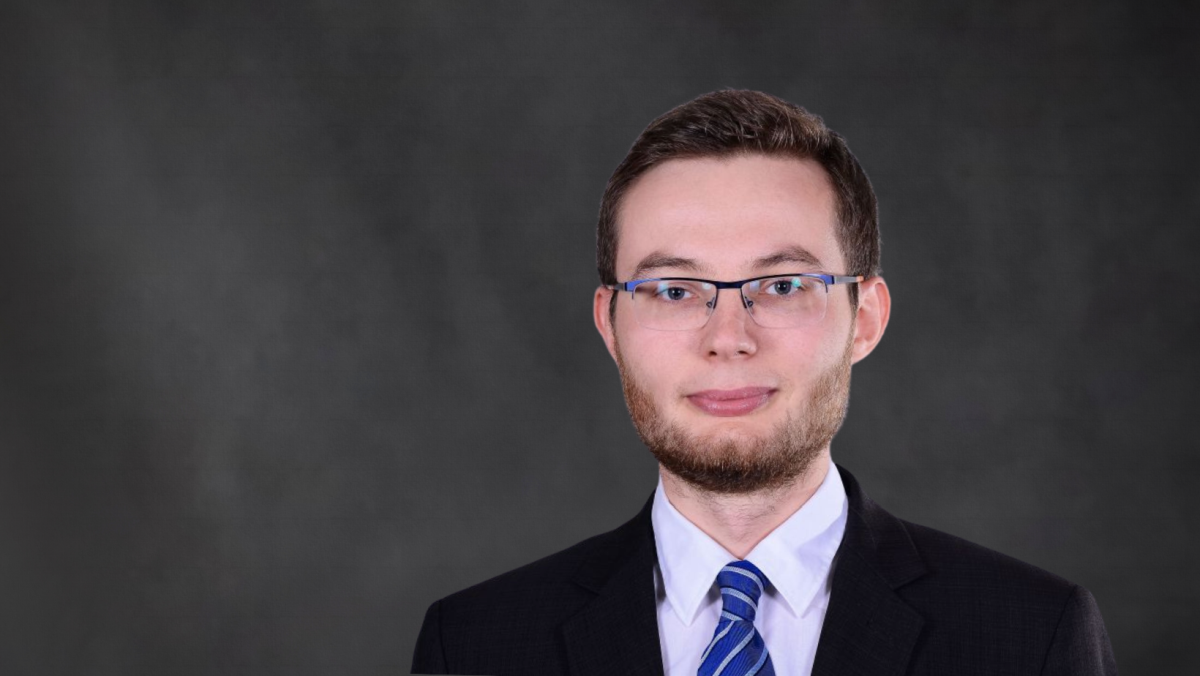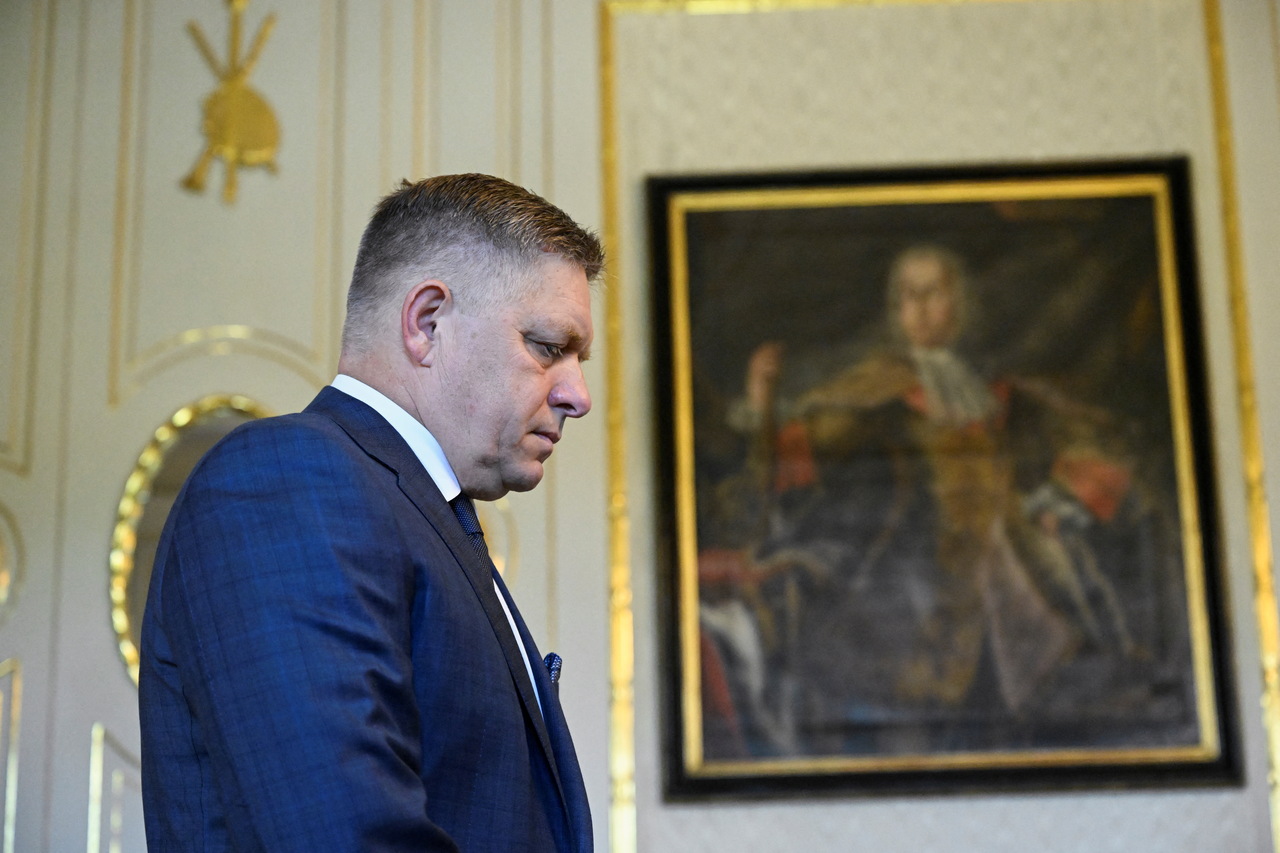"To the Four Corners of the World": Slovakia Focuses Foreign Policy on Non-EU Partners
Established in late 2023, the government of Robert Fico is pursuing a policy of “opening to the four corners of the world”. In practice, it means intensifying relations with non-EU partners, mainly BRICS countries. This pro-Russian, anti-Ukrainian policy has sparked mass protests and a motion of no confidence in the government, filed in early 2025. The reorientation of foreign policy poses a challenge to the development of Polish-Slovak relations, regional cooperation, and Poland’s presidency of the EU Council.
.png) Adriano Machado / Reuters / Forum
Adriano Machado / Reuters / Forum
Slovakia’s foreign policy, implemented under the slogan “to the four corners of the world,” is intended to unify its approach to both allies and distant partners. The premise corresponds with a foreign policy memorandum signed last September by the prime minister, the deputy speaker of parliament, and President Peter Pellegrini, who, since he was sworn in last June, has been supporting the government’s efforts. Earlier, in late 2023, Fico included the assumptions for reorienting foreign policy in his fourth cabinet’s programme, “Slovakia First”.
Closer to Russia
Since Fico returned to power, Slovakia has become Russia’s second-closest political partner in the EU, after Hungary. The prime minister demonstrated his desire to improve relations with a visit to Moscow on 22 December. While among the few leaders from EU countries visiting Russia since its invasion of Ukraine, Fico remains the only one who has not visited Kyiv since then. The stated purpose of the visit to Russia was to ensure the flow of gas supplies after the expiration of the Russian-Ukrainian transit agreement at the beginning of this year. The visit was also part of a series of bilateral meetings that included talks between the foreign ministers of Slovakia and Russia last March and September. In January this year, a delegation from the Slovak parliament, headed by its vice-chairman and the leader of the co-ruling Slovak National Party, Andrej Danko, went to Moscow. In addition, Fico announced his participation in the commemoration of the anniversary of the end of World War II in Moscow.
Fico shies away from criticising Russia. He presents it as a reliable partner with whom relations should be normalised. This is supposed to mean moving away from EU sanctions, which, in his view, mainly harm the EU, and returning to economic and energy cooperation. This includes the supply of nuclear fuel to Slovakia’s nuclear power plants, which are key to the country’s energy mix. Among Fico’s ambitions are to hold a Russian-Ukrainian peace summit in Slovakia.
Slovakia’s intensifying relations with Russia are accompanied by deteriorating relations with Ukraine. Fico, in appealing to pro-Russian public sympathies, blames Ukraine for economic losses resulting from the cessation of gas transit (according to the Slovak authorities, the state will lose €500 million in transit fees). It has threatened to cut off electricity supplies and humanitarian aid to Ukraine if it does not resume gas transit. Slovakia also opposes the country’s accession to NATO and has made support for its EU ambitions contingent on continued energy cooperation from the beginning of the year. The deterioration in relations comes despite the maintenance of intergovernmental consultations, last held in October and April 2024. In addition, the Slovak government in September adopted a policy of involving Slovak companies in Ukraine’s eventual reconstruction.
His pro-Russian policies and visit to Moscow are the main reasons for the protests in January in Slovakia. The public demonstrations were the largest since 2018, after which Fico lost the prime ministership, and more are planned. What’s more, the opposition’s motion of no-confidence amidst a shaky parliamentary majority for Fico (several MPs in January announced they would not participate in such a vote), are forcing the government to seek support outside the coalition and consider the scenario of early elections.
Opening Up to Asia
The Slovak government is stepping up relations with China, which had been criticised by previous cabinets. This intensification was reflected in their elevation to a strategic partnership during Fico’s visit to Beijing in November 2024, at which time 13 documents on cooperation were also signed and visa-free stay for Slovak citizens (up to 15 days) was announced, and a Bratislava-Beijing air link launched. Fico’s government, hoping for an influx of Chinese investment, was one of five in the EU to oppose the imposition of tariffs on Chinese electric vehicles. In addition, it backed a peace plan announced last May by China and Brazil, but criticised by the Ukrainian government, that involves freezing the conflict in its current territorial form.
Slovakia is also strengthening cooperation with other important Asian partners. It entered into a strategic partnership with Turkey during Fico’s visit to Ankara in January this year, when agreements on security (including joint military training and counterterrorism) and energy were signed. Following the cessation of gas supplies through Ukraine, Slovakia has been seeking to continue sourcing Russian gas through the TurkStream pipeline and other connectors. Talks about gas supplies and defence cooperation were the subjects of Fico’s visit to Azerbaijan last May, culminating in the conclusion of a strategic partnership. Recognising the “shift of the geopolitical and economic centre of gravity to the Indo-Pacific region”, Foreign Minister Juraj Blanár announced the creation of a government strategy toward the region during his visit to India last February.
Ties with the Americas
Fico is also pinning his hopes on improving relations with the U.S. under President Donald Trump. He is portraying personal ties with the U.S. leader, including his worldview, and moreover, both were victims of assassination attempts last year, for which they blame media vilification. Fico sees in Trump the prospect of a quick end to the Russian-Ukrainian war, which was the subject of a phone conversation between the two politicians after the U.S. presidential election.
In the intra-political narrative, Fico uses Trump’s criticism of the Biden administration’s approach to the Russian-Ukrainian war to disavow the main opposition party’s (Progressive Slovakia) support of Ukraine. Its leaders accuse the prime minister of being submissive to Russia and visited President Volodymyr Zelensky in Kyiv in January.
Fico visited Brazil last December, Slovakia’s first prime minister to do so. Bilateral agreements on security, intelligence-sharing, and negating double taxation were signed. The purchase of three Brazilian C-390 transport aircraft for the Slovak armed forces was also announced. Slovakia supports the conclusion of the EU-Mercosur partnership agreement. It sees it as an opportunity to increase foreign investment in the country and protect the interests of Slovak businesses abroad.
Conclusions and Prospects
The Fico government’s policy means, in practice, strengthening economic and political ties with non-EU countries, mainly BRICS states. Its aim is to compensate for waning contacts with some of Slovakia’s EU partners and to reap political and economic benefits when cooperation with Russia becomes more widely accepted again. This approach is inspired by the policy of Hungary, which, in developing contacts with non-EU countries, often acts at odds with the EU position. This was evident both at the beginning of Hungary’s pursuit of such policy and during its recently concluded presidency of the EU Council. Although in domestic politics Fico’s international activism is meant to demonstrate to voters his proficiency in the face of global and energy challenges, the massive protests stemming largely from his and his government’s closer relations with Russia nevertheless point to its high cost. Fico’s goal of hosting a peace summit is, however, unlikely due to Ukrainian-Slovak tensions.
Despite the failure of Chinese multilateral projects in Central Europe and the deterioration of relations between some countries in the region with China following the Russian invasion of Ukraine, Slovakia is forging increasingly strong economic and political ties with China. While this has come at the expense of transatlantic relations, Fico hopes to improve them by reaching out to President Trump. The Slovak government is also pinning its hopes for a stronger global position through non-permanent membership of the UN Security Council, which Slovakia is seeking for the 2028-2029 term.
The Fico government’s foreign policy is challenging for Poland because, first, it involves the loss of a partner that had a similar outlook on Russian aggression against Ukraine, and second, it contradicts some of the demands of Poland’s EU Council presidency. Fico’s additional conditioning of support for Ukraine’s integration into the EU may make it more difficult to open the first negotiating cluster in the six-month term, which is the goal of the Polish presidency. Third, on EU issues, Poland and Slovakia are divided in their assessment of sanctions on Russia, EU-China relations and the EU-Mercosur agreement. Fourth, the deepening divergence in perceptions of the Russian-Ukrainian war perpetuates the paralysis of political cooperation in the Visegrad Group, which Poland chairs and whose prime ministers have not met for a year now. Indeed, Fico’s talk about intensification of cooperation within the V4 remains impossible because of his government’s pro-Russian policies.




.jpg)
.png)